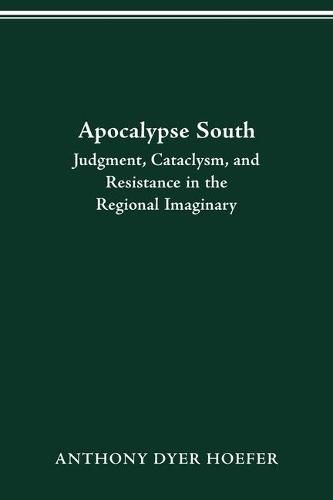Readings Newsletter
Become a Readings Member to make your shopping experience even easier.
Sign in or sign up for free!
You’re not far away from qualifying for FREE standard shipping within Australia
You’ve qualified for FREE standard shipping within Australia
The cart is loading…






This title is printed to order. This book may have been self-published. If so, we cannot guarantee the quality of the content. In the main most books will have gone through the editing process however some may not. We therefore suggest that you be aware of this before ordering this book. If in doubt check either the author or publisher’s details as we are unable to accept any returns unless they are faulty. Please contact us if you have any questions.
While John Winthrop might have famously uttered the phrase city upon a hill on the way to Massachusetts, the strands of millennialism and exceptionalism that remain so central to U.S. political discourse are now dominated by eschatological visions that have emerged from the particular historical experiences of the U.S. South. Despite the strategic exploitation of this reality by political communicators, scholars in the humanities have paid little attention to the eschatological visions offered by southern religious culture. Fortunately, writers and artists have not ignored such matters; compared to their academic counterparts, southern novelists have been far better attuned to a southern apocalyptic imaginary-a field of reference, drawn from the cosmology of southern evangelical Protestantism, that maps the apocalyptic possibilities of cataclysm, judgment, deliverance, and even revolution onto the landscape of the region. Apocalypse South rectifies the omissions in existing scholarship by interrogating the role of apocalyptic discourse in selected works of fiction by four southern writers-William Faulkner, Richard Wright, Randall Kenan, and Dorothy Allison. In doing so, it reinvigorates discussions of religion in southern literary scholarship and introduces a new element in the ongoing investigation into how regional identities function in notions of national mission and American exceptionalism. Engaging concerns of religion, race, sexuality, and community in fiction from the 1930s to the present, Apocalypse South offers a new conceptual framework for considering what has long been considered southern Gothic literature -a framework less concerned with the conventions of a particular literary genre than with the ways in which literature exposes and even tries to make sense of the contradictions within cultures.
$9.00 standard shipping within Australia
FREE standard shipping within Australia for orders over $100.00
Express & International shipping calculated at checkout
This title is printed to order. This book may have been self-published. If so, we cannot guarantee the quality of the content. In the main most books will have gone through the editing process however some may not. We therefore suggest that you be aware of this before ordering this book. If in doubt check either the author or publisher’s details as we are unable to accept any returns unless they are faulty. Please contact us if you have any questions.
While John Winthrop might have famously uttered the phrase city upon a hill on the way to Massachusetts, the strands of millennialism and exceptionalism that remain so central to U.S. political discourse are now dominated by eschatological visions that have emerged from the particular historical experiences of the U.S. South. Despite the strategic exploitation of this reality by political communicators, scholars in the humanities have paid little attention to the eschatological visions offered by southern religious culture. Fortunately, writers and artists have not ignored such matters; compared to their academic counterparts, southern novelists have been far better attuned to a southern apocalyptic imaginary-a field of reference, drawn from the cosmology of southern evangelical Protestantism, that maps the apocalyptic possibilities of cataclysm, judgment, deliverance, and even revolution onto the landscape of the region. Apocalypse South rectifies the omissions in existing scholarship by interrogating the role of apocalyptic discourse in selected works of fiction by four southern writers-William Faulkner, Richard Wright, Randall Kenan, and Dorothy Allison. In doing so, it reinvigorates discussions of religion in southern literary scholarship and introduces a new element in the ongoing investigation into how regional identities function in notions of national mission and American exceptionalism. Engaging concerns of religion, race, sexuality, and community in fiction from the 1930s to the present, Apocalypse South offers a new conceptual framework for considering what has long been considered southern Gothic literature -a framework less concerned with the conventions of a particular literary genre than with the ways in which literature exposes and even tries to make sense of the contradictions within cultures.